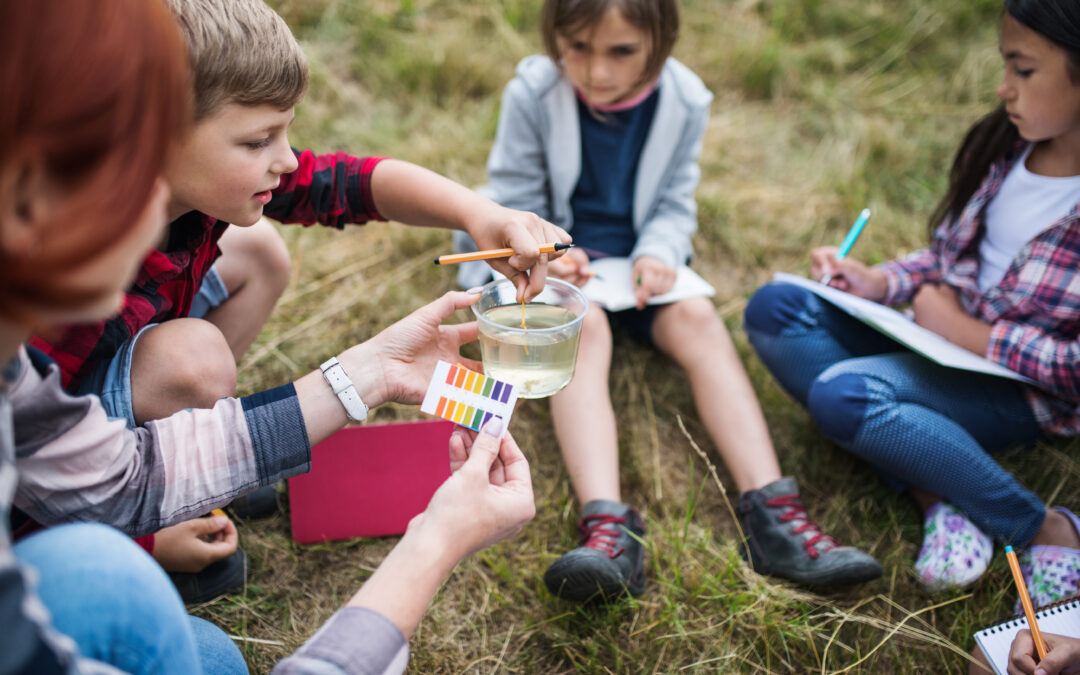Record-Keeping for Unschoolers
Unschooling is a subset of homeschooling where education is child-led. It often takes place without a formal structure. This can include learning without fixed classes, study periods, routine homework, or curriculum—at least as these things are traditionally understood in the modern world. If you are unfamiliar with unschooling, check out Phillip Campbell’s Introduction to Unschooling post.
In this article, we will talk about record-keeping strategies for unschooling. Unschooling can pose particular challenges for state record-keeping requirements. Because it lacks formal structure, it can be hard to explain what classes and coursework your child has completed and even harder to document. Record-keeping requirements across states are mixed. Even in states with record-keeping laws, a few may never ask to see them. Still, it is a good idea to maintain some form of documentation of your child’s educational journey, even if it is only for trips down memory lane later!
Here are some easy-to-implement strategies for record-keeping if you are unschooling or if you’re an eclectic homeschooler using a variety of resources.
Journaling
Journaling can be your private writing about your child’s educational endeavors. Better yet, have your child keep a journal about his or her work. In the latter case, requiring your child to journal and reflect on what they have learned can be an alternative to traditional homework. Journaling can help your child practice handwriting (or typing) skills, develop memory mastery, hone organization expertise, strengthen communication aptitude, and more.
If you want to take journaling to the next level, you or your child can employ crafting skills to decorate it. There are some fun ideas on Pinterest (for example).
Scrapbooking
Scrapbooking is similar to journaling, except it is more visual. Rather than writing about what you have accomplished, you include samples to create a snapshot of your homeschooling at a particular point. Scrapbooking is a wonderful activity you can do together with your child, especially if they are one of the artistic types. The scrapbook not only chronicles your progress, but the act of scrapbooking with your child itself creates beautiful memories.
Blogging
Many well-known Catholic homeschool blogs began as parents simply wanting to document their daily lives. A blog functions as an online journal, recording your progress and sharing it with the public. This enables you to communicate with other Catholic homeschool bloggers, get feedback, exchange ideas, and network. Blogger and WordPress offer free templates for you to begin your homeschool blog. You can always check out other popular Catholic homeschool blogs if you need inspiration.
You can also have your child start a blog, but keep it private for friends and family. I’ve had children do this to document travels as well as provide a space for them to share their creative writing endeavors.
Make a Photo Collection
If scrapbooking or blogging sounds too involved, keep it simple and take photos of your child’s work. You can print photos if you want or keep them organized digitally.
Websites like Flickr, Photobucket, and SmugMug make storing and organizing your photos easy if you don’t want to keep them on your device (plenty of other photo storage options are available, too). I recommend sorting them into folders to make retrieving needed information easier. You could have one folder per child or school year. Then, add subfolders for subject areas or projects. For example, you could have subfolders for LEGO projects, museum visits, science experiments, and nature walks
If sorting your photos is challenging, some websites will help you compile photos so you don’t get overwhelmed. Check out Shutterfly and Snapfish.
Pinterest Boards
Pinterest boards can be used as a virtual filing cabinet of ideas. It’s one way to keep your thoughts together. You can create boards for projects you want to do or for crafts you and your children have completed. specifically dedicated to it called. Think of it as a virtual filing cabinet.
If you’re unschooling, there is a Pinterest board specifically dedicated to the subject called Unschooling Mom2Mom that you could check out!
You can also encourage your children to keep their own Pinterest boards to document their studies and interests. Note that you can make Pinterest boards private, so they’re not shared publicly.
Using a Planner or Calendar
Using a planner doesn’t mean you need to plan out your whole year or do any of the things you probably want to avoid as an unschooler. Rather, you can use the planner to retroactively keep records of what you’ve already done. This is perfect for a busy mother who doesn’t have time for scrapbooking, Pinterest boards, or other crafty approaches. After you’ve done something, make a note in the planner for your records so, at the minimum, you have a handy reference to demonstrate what you and your children have been actively learning together.
For more resources on unschooling from the Homeschool Connections blog, see:
Introduction to Homeschooling
Unschooling: It’s Not What You Think (podcast)
The Organized Unschooler
Do you have tips to share or questions to ask? I invite you to join our Catholic Homeschool Connections Community and start a conversation.






